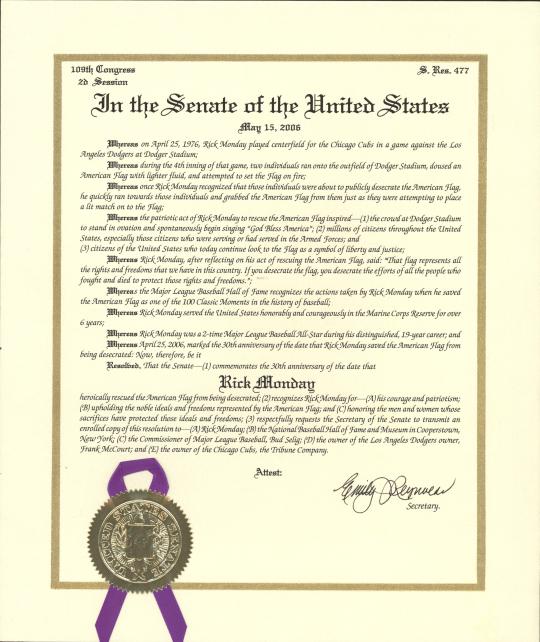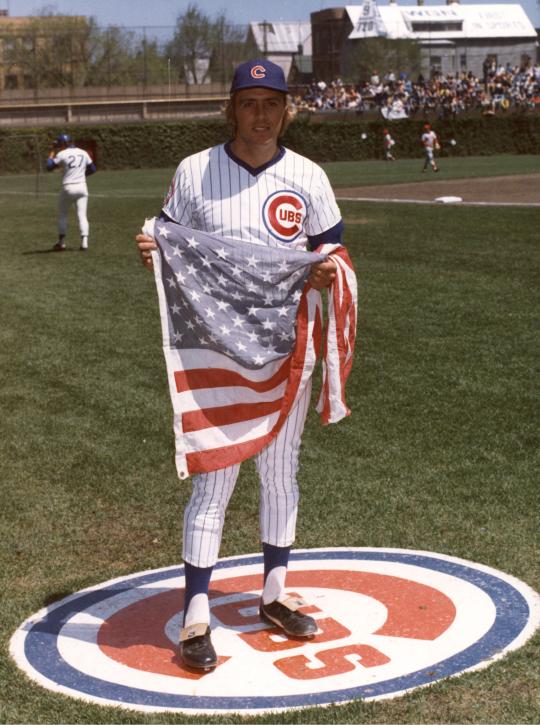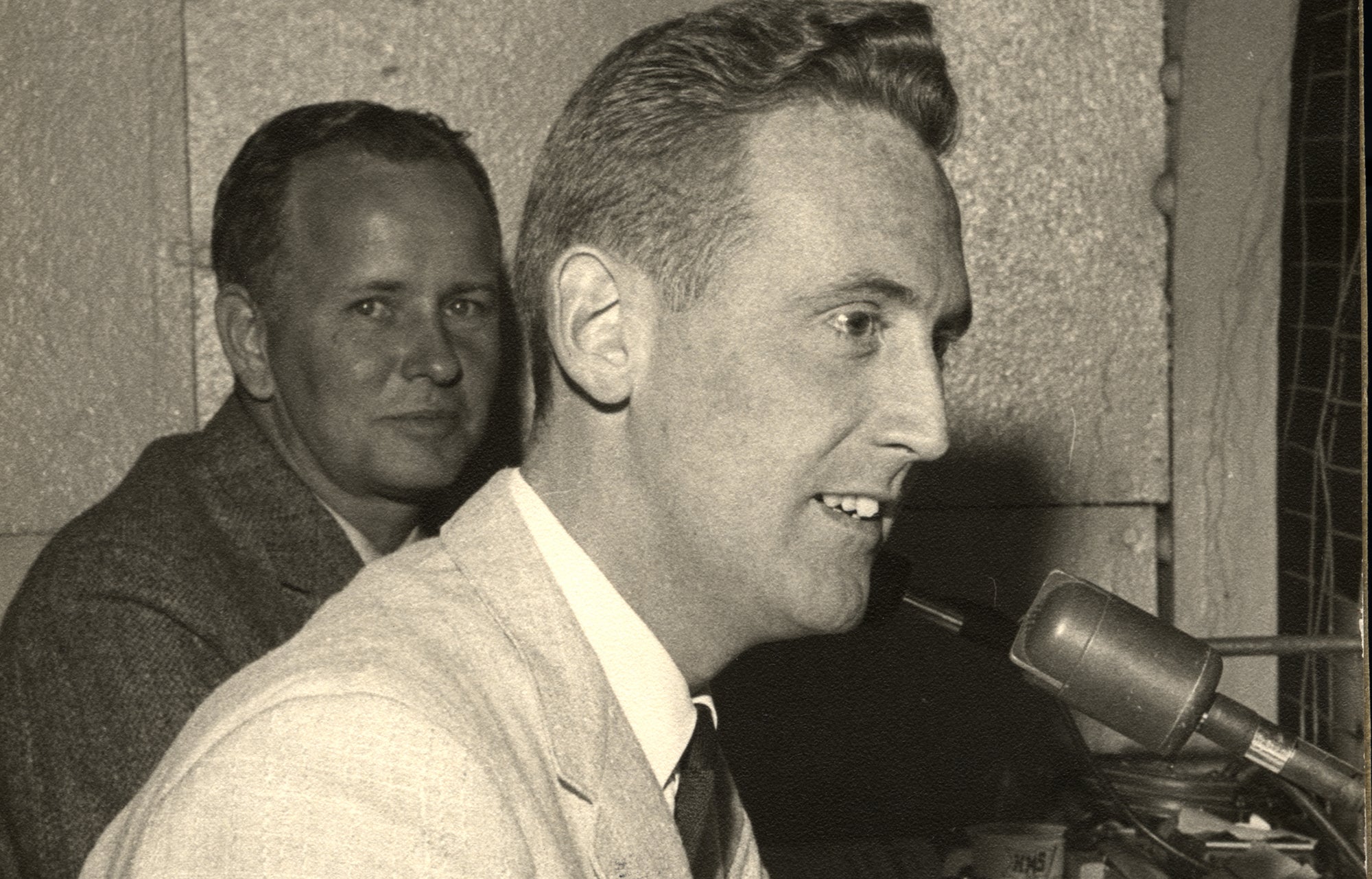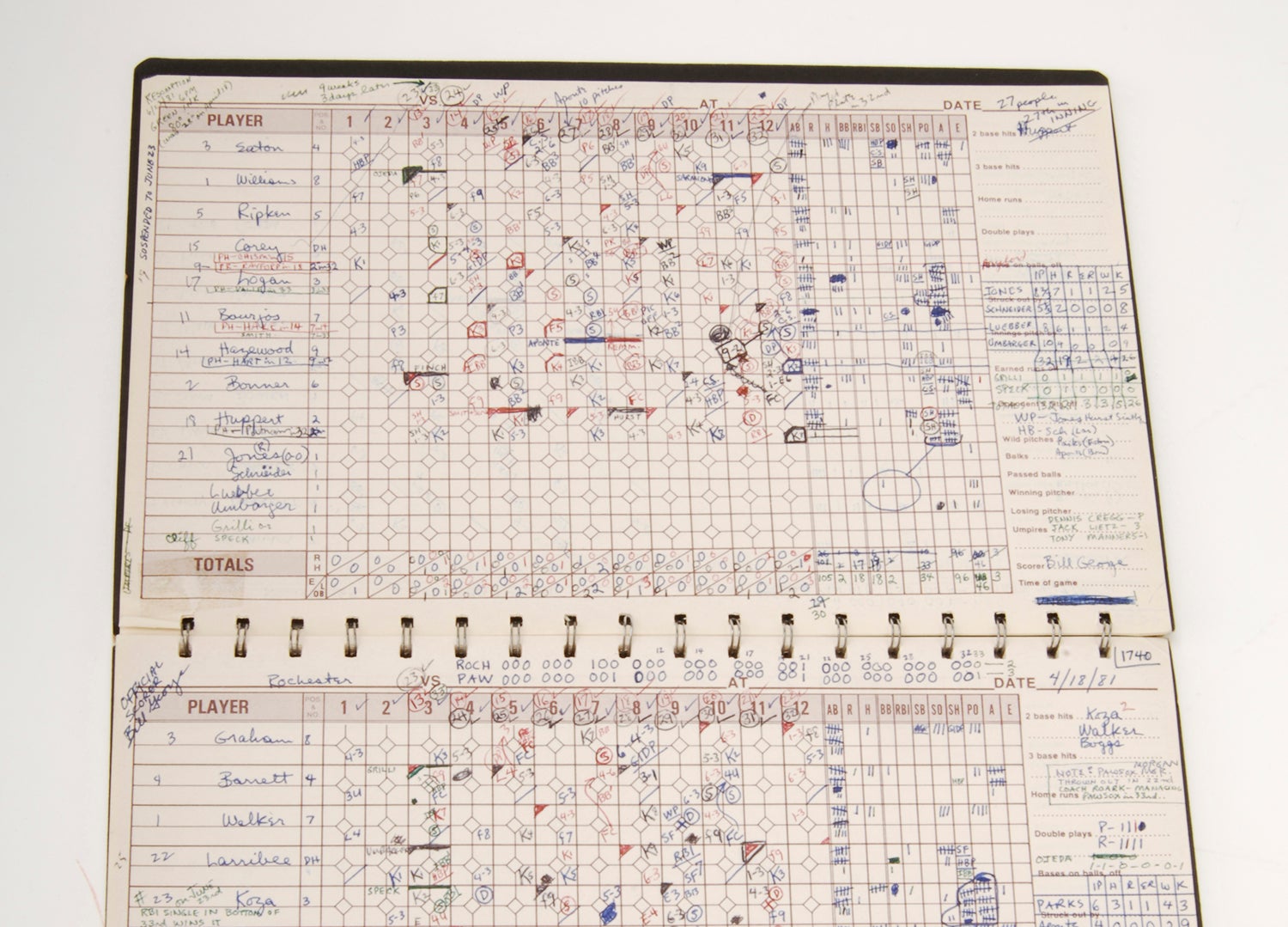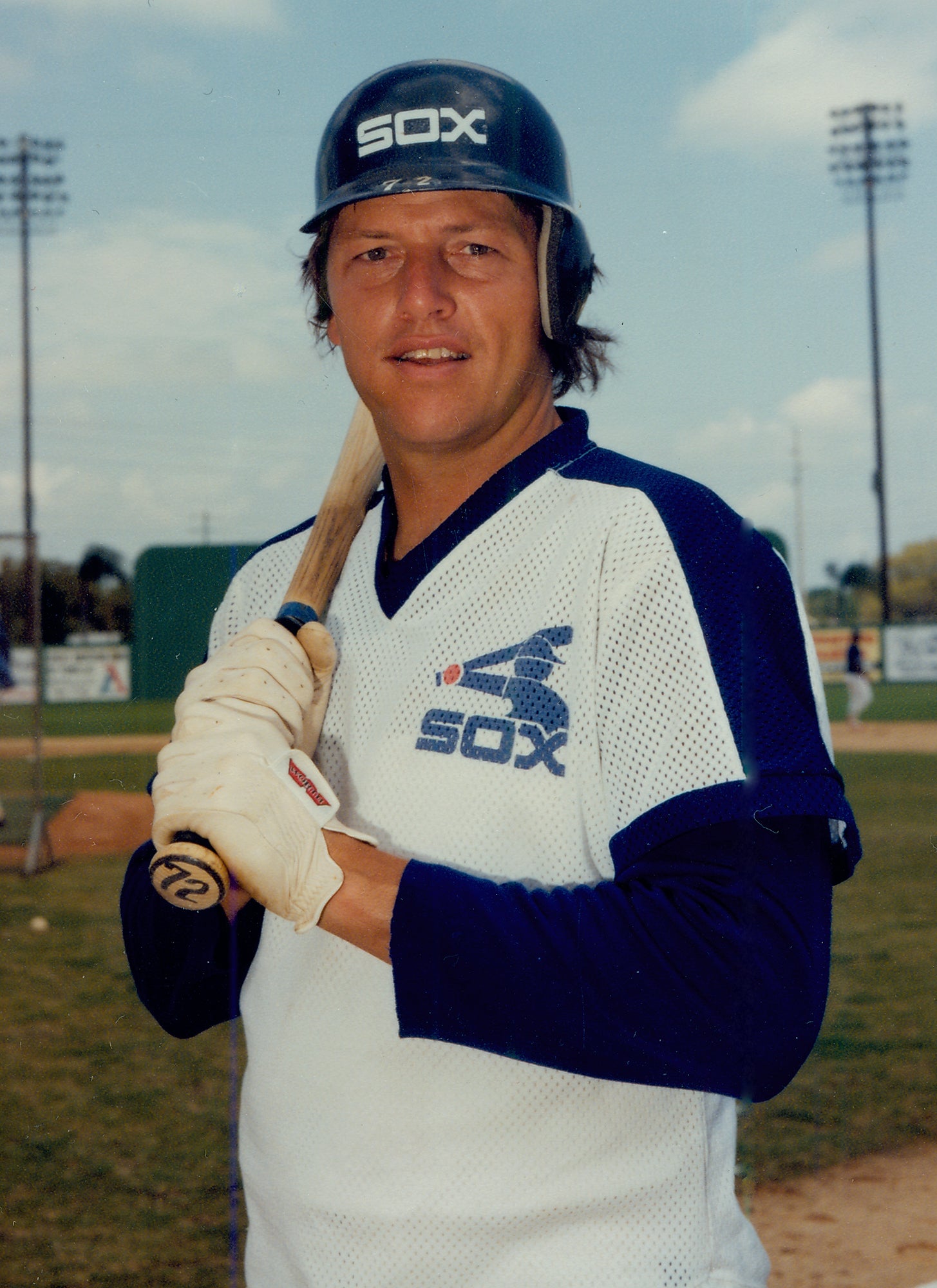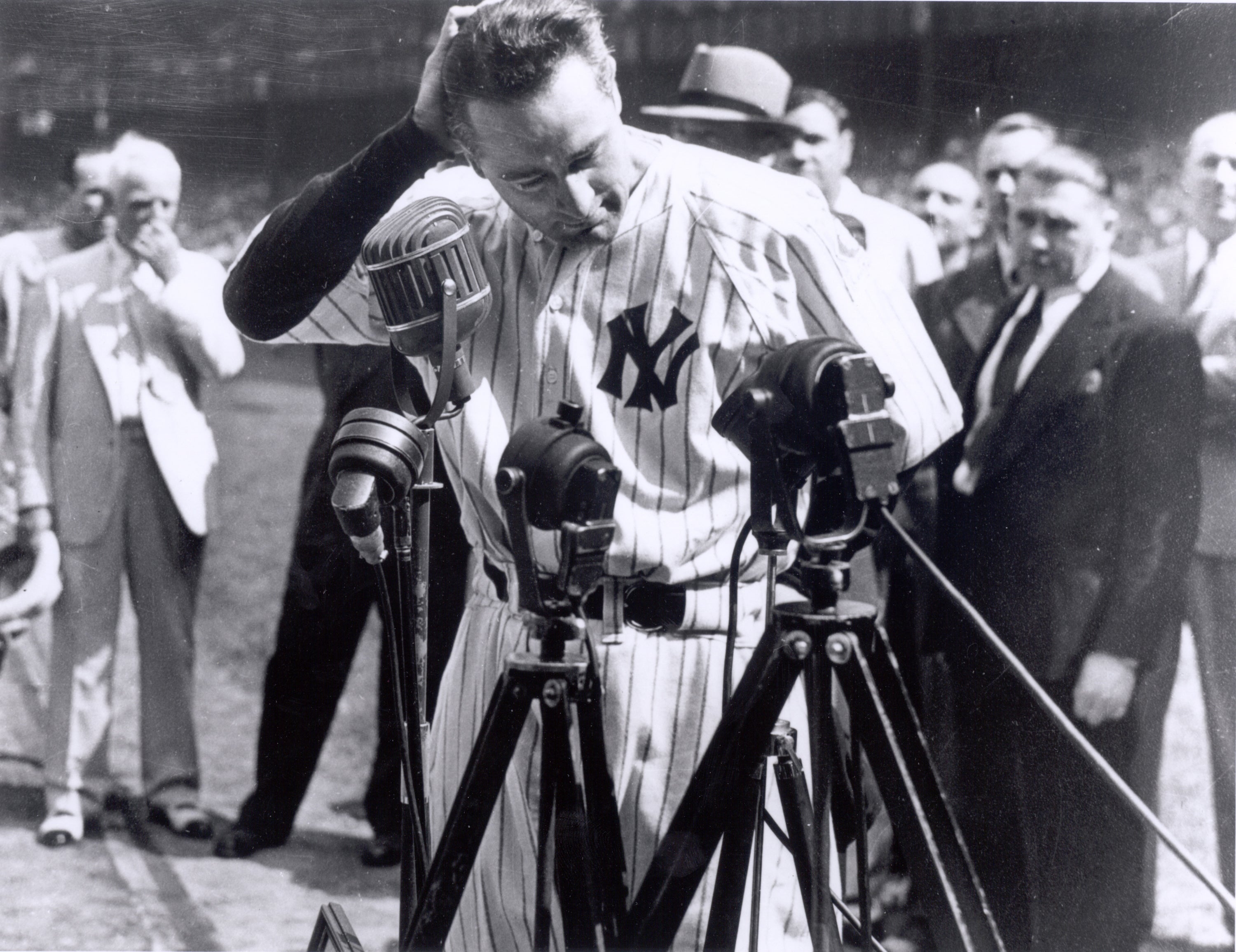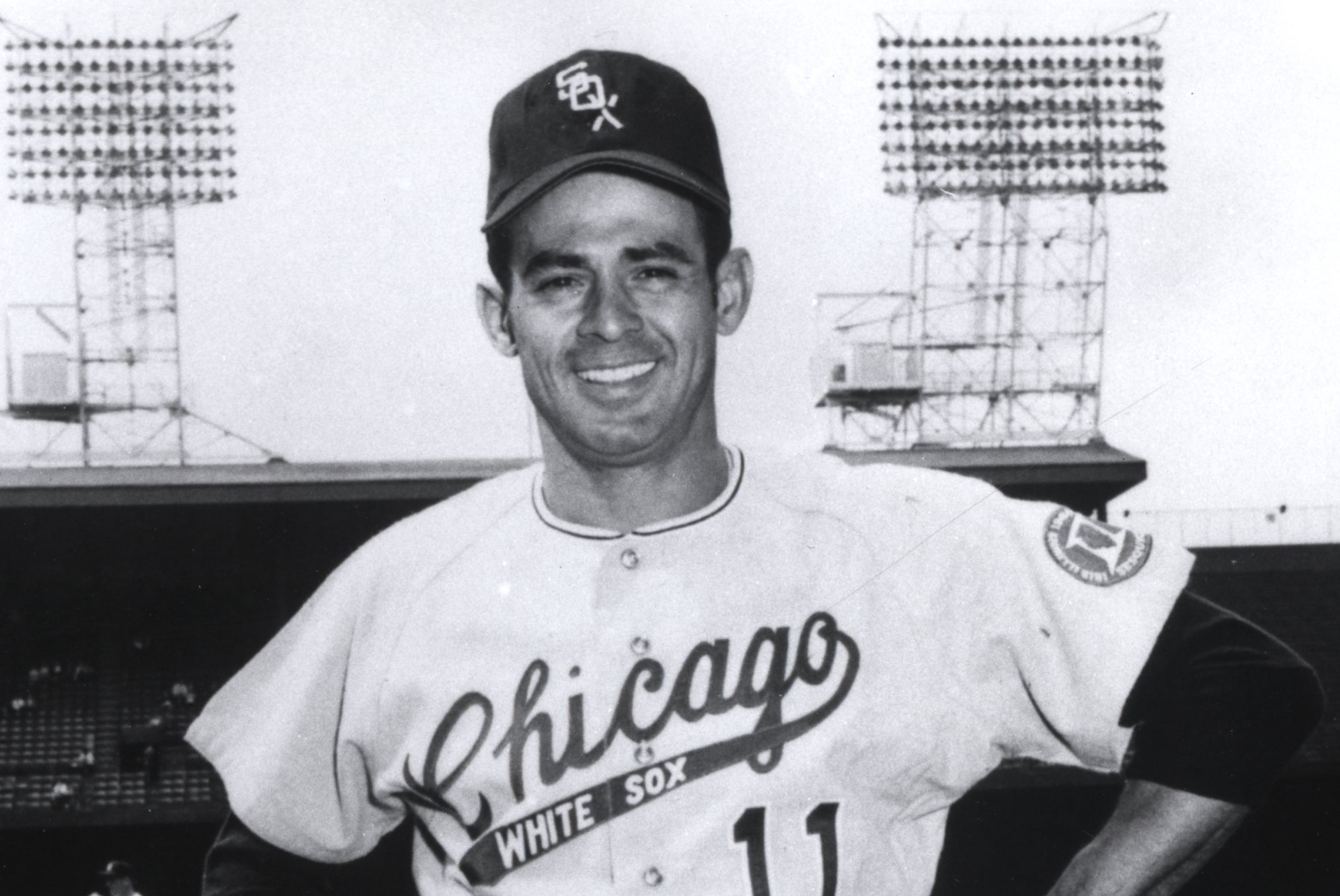Monday motivation
Nearly five decades after Rick Monday recorded one of baseball’s most memorable saves, of an American flag that was about to be burned in the Dodger Stadium outfield, the iconic photo, grainy video clip and significance of the event remain seared in the minds of baseball fans across the country.
“You know what’s really kind of strange is I get letters every week, some from people who were not even born at the time,” Monday, now 77 and completing his 30th year as a Dodgers broadcaster, said before a 2023 game at Chavez Ravine. “And twice today, here at the ballpark, I’ve already had people say, ‘Thanks for doing something for the flag.’”
Monday was playing center field for the Chicago Cubs on April 25, 1976, when, in the fourth inning of a Sunday afternoon game in Los Angeles, two fans — identified as William Errol Thomas Jr., then 37, and his 11-year-old son — ran into shallow left-center field, doused an American flag in lighter fluid and attempted to set fire to it.
When Monday, who served six years in the Marine Corps Reserves, realized what was happening, he rushed the arsonists, reached down with his right hand and snatched the flag away from them, barely breaking his stride as he jogged toward the third base line and handed the soaking-wet stars and stripes to Dodgers pitcher Doug Rau.
A crowd of 25,167, many listening to Vin Scully’s call on their transistor radios, gave Monday a standing ovation. When Monday came to bat an inning later, the Dodger Stadium scoreboard flashed the message: “Rick Monday…You made a great play.”
Jim Roark’s photograph of Monday clutching the flag as he ran past the unsuspecting intruders, which was nominated for a Pulitzer Prize, was heralded by former Los Angeles Times columnist Jim Murray as “the most famous picture of its kind since the flag-raising at Iwo Jima.”
Monday’s response to the would-be flag-burners, which he says was inspired by the way he was raised by a single mother in Santa Monica, Calif., as well as his stint with the Marine Corps Reserves from 1966-71, was not immediate. First, he had to process his emotions and determine what exactly was going on.
“I was mad at first, because they came into my ‘office’, that being on the field during a game,” Monday said. “There had already been a pitch or two thrown that inning, and I was irritated that they were going to interrupt the game.”
Monday saw one of the fans carrying an American flag underneath his arm, and though the U.S. was in the midst of its 1976 bicentennial celebration, “I knew they weren’t there to wave it,” Monday said. The U.S. was gripped in turmoil at the time, reeling from the Watergate scandal and the ravages of the Vietnam War, and when the fan unfurled the flag on the ground, kneeled beside it and began dousing it with lighter fluid, it was clear this was some kind of political protest. Monday’s instincts then took over.
“To this day, I don’t know if I was thinking about bowling him over, but as it turned out, the wind blew out the first match,” Monday said. “And the second one, the guy thinks he’s putting the match to the flag in the instant I’m able to take it away.
“I could feel the moisture of the lighter fluid immediately, and my first thought was, ‘Is it on fire?’ It was not. And as I went off, the guy threw the can of lighter fluid at me, and he missed.”
Monday said he still gets goosebumps listening to Scully’s call of the incident.
“The flag that they were trying to desecrate that day still has a life,” Monday said, “and we’ve tried to carry on and protect the overall scope of what that flag means to me and my family, as well as those who have served in the military and their families.”
Monday enjoyed a solid 19-year MLB career, batting .264 with an .804 on-base-plus-slugging percentage, 241 home runs, 248 doubles, 64 triples and 775 RBI for the Athletics, Cubs and Dodgers from 1966-84.
A two-time All-Star who was the first overall pick in the inaugural MLB Draft in 1965, Monday had his best season for the Cubs in 1976 — the same year he rescued the flag — batting .272 with an .853 OPS and a career-high 32 homers, 77 RBI and 107 runs.
Monday also hit one of the most dramatic home runs in Dodgers playoff history, a solo shot off Steve Rogers in the top of the ninth inning to lift Los Angeles to a 2-1 victory over the Montreal Expos in the fifth and deciding game of the 1981 National League Championship Series in Olympic Stadium.
The Dodgers went on to defeat the New York Yankees in a six-game World Series, giving Monday his first and only championship ring.
That he will always be remembered more for rescuing a flag in 1976 than for what he accomplished during his playing career hardly rankles Monday.
“The back of a baseball card is only good for as long as someone does not put it in the spokes of their bicycle,” Monday said. “The flag, hopefully, is going to fly forever.”
Mike DiGiovanna covers baseball for the Los Angeles Times.

